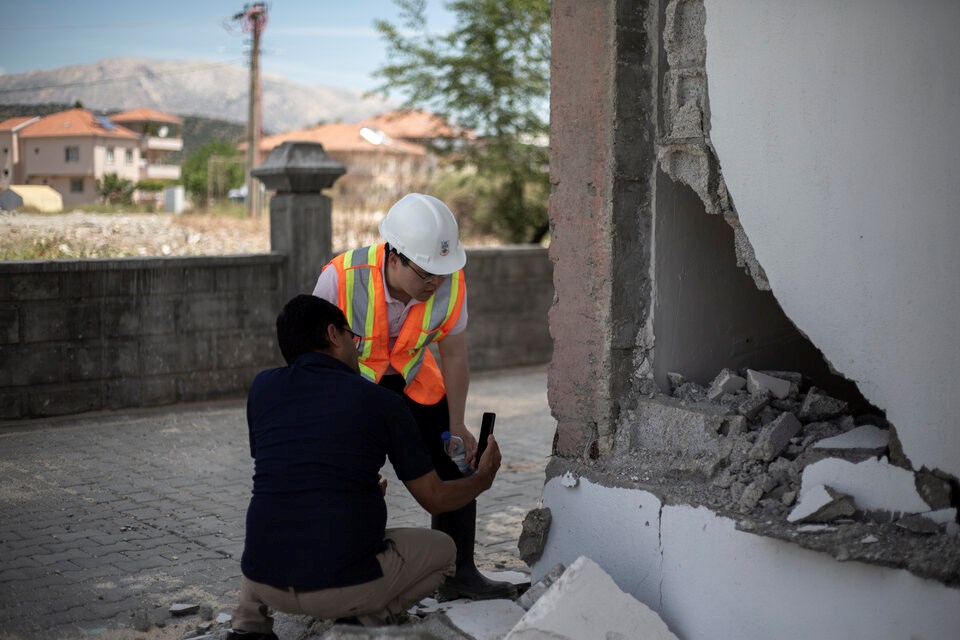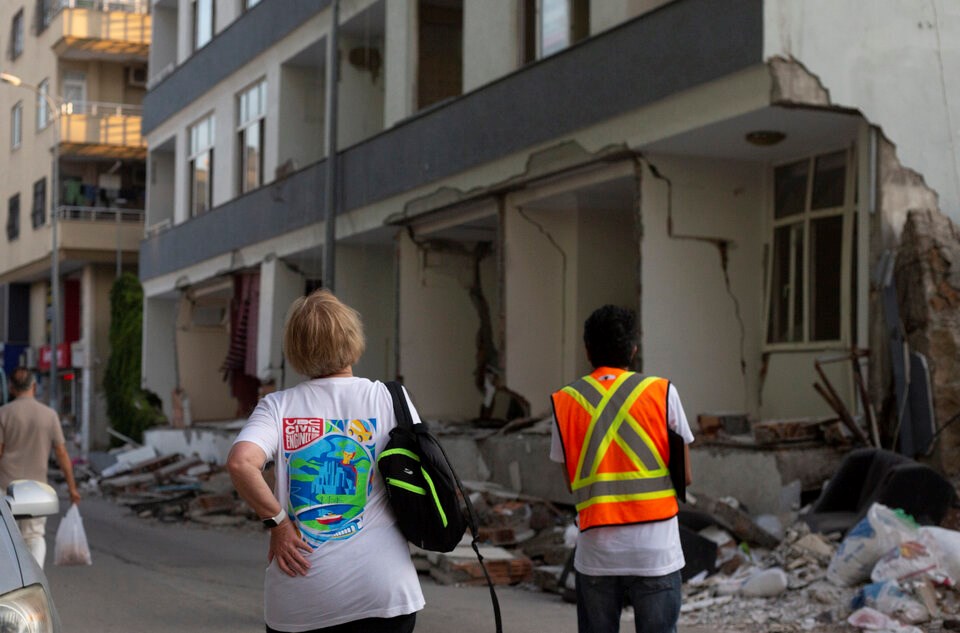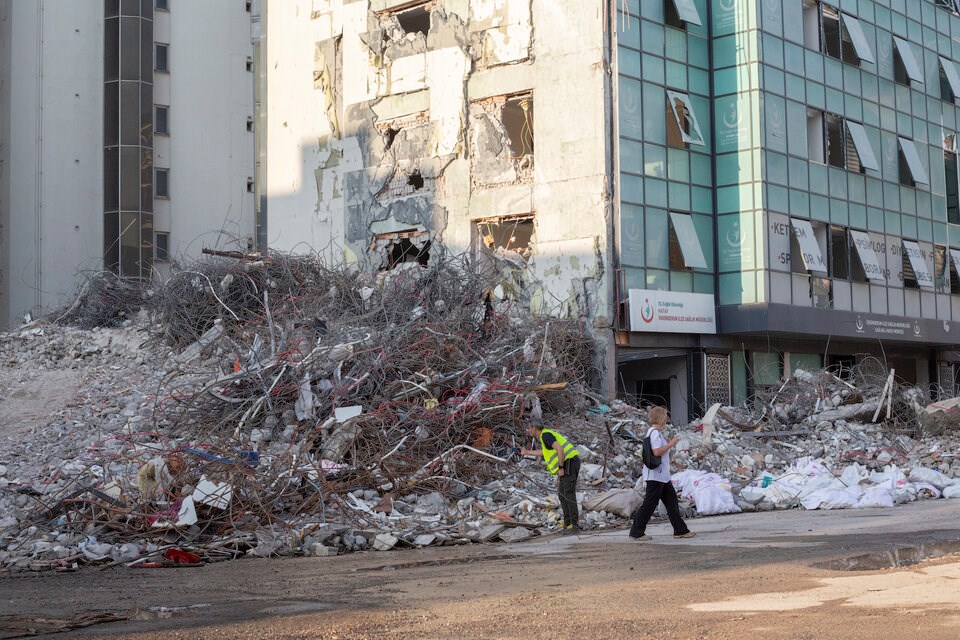A group of B.C. researchers who recently surveyed dozens of Turkish towns and cities devastated by earthquakes this year say B.C. is falling behind.
“I don't think we are as vigilant as the Turkish colleagues,” said Tony Yang, a professor of engineering at the University of British Columbia who led the international team. “If this happens again, in the next minute, they are ready to handle it.”
“I think we are not at the moment.”
The international group of engineers hailed from UBC, BCIT, and several other institutes and private firms across Canada, Turkey and Europe. In June, Yang led them on what he described as a gruelling research mission to learn why several buildings collapsed when others did not.
The group visited 18 towns and several cities in a region that was rocked by three major earthquakes in two weeks. The events, which included more than 2,500 aftershocks, hit 11 major urban centres in Turkey and 1,300 villages across an area greater than 100,000 square kilometres.
In total, the quakes affected 14 million people, killing more than 50,000 and injuring more than 100,000. The shaking damaged or destroyed more than 2.5 million buildings, including more than a half-million houses that either collapsed, were severely damaged, or had to be demolished.
All told, that led to US$103 billion in direct losses — roughly nine per cent of the country’s GDP.
At a press conference Friday, Yang showed video of towns where entire neighbourhoods had been rendered uninhabitable.
“It feels like an atomic bomb has happened in this town,” he said. “This is bigger than what we expected. We need to learn from that.”
Yang said that most of the damaged buildings were older and made of concrete, often built after a a building code update had been put in place.

Svetlana Brzev, an adjunct professor at UBC’s Department of Civil Engineering, said she was shocked to see so many modern multi-storey highrises had collapsed.
“I must say this was the most extensive devastation I've ever seen,” Brzev said. “These buildings, on the first site, look similar to the buildings that we have here. Many people in Canada live in concrete buildings. But I would say the main difference is that there is a high level of quality assurance in the construction implementation.”
But in other areas, Yang said Turkey is far ahead of B.C. when it comes to its preparation for future earthquakes.
“The [Turkish] government is ready to provide temporary shelters made of containers… millions of containers for people to stay,” he said.
When asked about the economic impact B.C. might face in the event of a major earthquake, Yang pointed to two 2011 earthquakes as a point of comparison — one in Tohoku, Japan, where direct losses added up to US$235 billion, and another in Christchurch, New Zealand, where the disaster bill rose to US$40 billion.
In B.C., a 2022 report describing two shallow earthquake scenarios estimated that an event near Metro Vancouver would lead to severe economic fallout for the entire country.
“For example, Vancouver Fraser Port Authority handles 19 per cent of Canada’s Gross Domestic Product and approximately $647 million/day in cargo; interruption of this, even for a short period of time, would have cascading effects across the country,” the report said.
It found economic losses due to direct damage to buildings alone could reach $30 billion for Greater Vancouver and $20 billion for Greater Victoria.
“Dollar for dollar, I think it will be more expensive to replace similar buildings here than in Turkey — for sure,” Yang said. “I think our infrastructure will be very vulnerable.”

Direct financial losses includes money paid out to replace a damaged building or infrastructure, for example. But that’s just the start, and indirect losses due to loss of business and casualties could see that total climb.
“I’m really hopeful it’s not going to happen in my own lifetime,” said Yang of a major earthquake on B.C.’s coast. “But if it does, we expect a significant amount of indirect loss to happen in our region.”
For that reason, earthquake planning, said Yang, needs to be constantly improved at all levels, from an individual family’s emergency kit and a plan for where to meet should the cell network collapse, to local governments and utilities, who need to find a way to get water and food to residents.
“The roads and bridges and tunnels need to be functional so we can start sending our resources around,” Yang said. “We need to make sure we work closely with BC Hydro to make sure electricity substations are still running.”
Allison Chen, practice advisor at Engineers and Geoscientists BC, said she was impressed by the vast army of volunteers that had been mobilized in Turkey following the earthquakes in February.
“They had a huge selection of volunteers to come and help with rapid damage building assessment post-disaster. So they had thousands of volunteers that were able to come on short notice,” Chen said.
She added that B.C. could learn from that, and already has a a training program to assess damage to buildings after a disaster.
“I would encourage people to do that, so that following an earthquake, we are more and more prepared,” Chen said of the BC Housing-run program.
“This is for earthquakes. It's also for floods and wildfires.”





